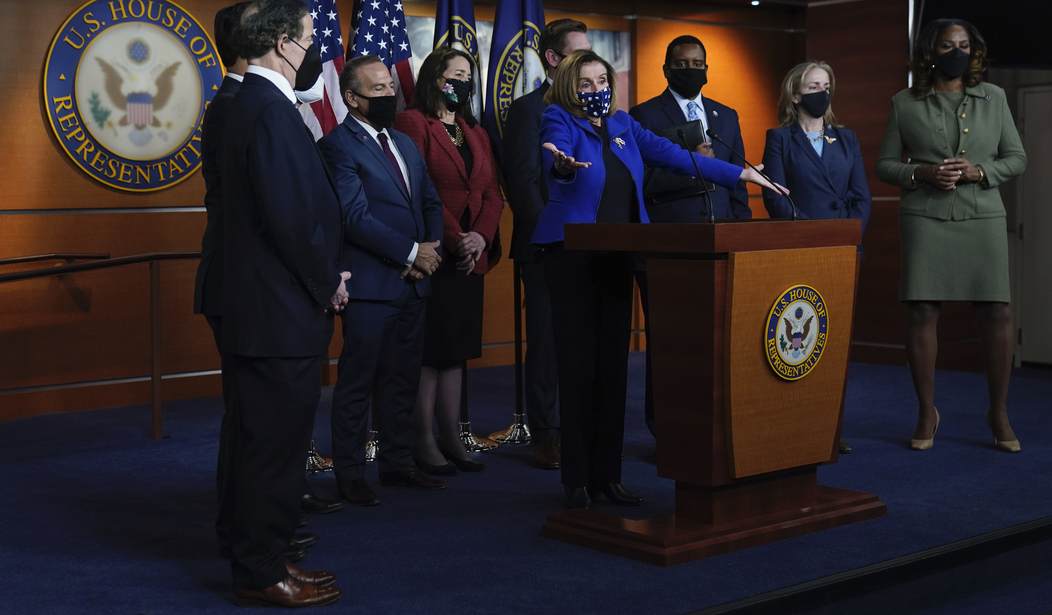In the past two months, our Nation’s vulnerability to crippling cyber-attacks has been on display for the world to see. In May it was the Colonial Pipeline hacking that successfully disrupted gasoline services across the East Coast. Before that SolarWinds, another energy provider, was hacked which also infected hundreds of its integrated customers and partners, and now we are facing another attack on our food distribution networks with the targeting of JBS, one of the largest meat processing companies in the country. In all three instances of cyberwarfare, the reaction among politicians in Washington was surprise at how vulnerable our country is to these attacks on our Homeland.
That we were unprepared to defend against foreign cyber-attacks should not have come as a surprise to any of these elected officials. Congress was in a position to assess and dramatically improve our cyber security infrastructure during the Obama administration. Rather than seize that opportunity, they chose to prioritize political games, fundraising and their own celebrity, and left our country open to cyberwarfare.
President Trump was aware of the nations’ vulnerabilities to critical infrastructure and took action by reviving the formerly defunct National Infrastructure Advisory Council (NIAC) to focus on badly needed cybersecurity solutions. The plan was to bring together the best cybersecurity and technology infrastructure minds in the country to formulate solutions to protect our nation’s defense, financial, transportation, and critically our energy networks, including natural gas and oil pipelines, nuclear power plants and electrical grids. The experts that would serve on the council would all be unpaid patriot volunteers with one thing in mind – to protect the infrastructure of our nation.
I was among the experts that volunteered to serve on the NIAC to lend my decades of experience in cybersecurity and defense solutions, and enterprise engineering in evaluating and repairing our cyber infrastructure, as I have previously done for the Department of State, Defense, Homeland Security and foreign allies around the world. Awaiting confirmation to the NIAC alongside me were some of the most experienced and brilliant experts in cybersecurity on the planet, all of us eager to step forward to help defend our country. Among them was Dr. Tobias Vogt who is a leading authority on nuclear security who served on a joint Special Operations-CIA command and taught nuclear security at Georgetown University. While some candidates were confirmed before the Trump impeachment gained momentum, most were never considered or presented to the Congressional Committee on Homeland Security to be put to good use.
Recommended
The protracted impeachment of President Trump by the Democrats forced confirmation to the NIAC to abruptly end. This stopped the delivery of ground-breaking cyber solutions that would have protected critical infrastructure including utilities companies such as Colonial. In fact, candidates that were not confirmed had in their possession critical cybersecurity solutions that would have prevented the Colonial Pipeline hack. In pursuing the impeachment, Democrats risked the safety and security of an entire nation, that rely on finance, transportation and energy infrastructure to survive. And now, we are at least two-years behind where we need to be to protect our infrastructure against a now emboldened hacker community.
Had my colleagues and I been confirmed, my first step would have been to introduce and demonstrate to the NAIC a cybersecurity solution designed specifically to prevent cyber-attacks against critical US infrastructure. The cybersecurity solution, STTarx, was tested by Troy State University, the Alabama Computer Forensics Institute, the US Army Special Operations Command (USASOC), the US Air Force, the Department of Homeland Security, and other elite agencies. The creators of this solution had one thing in mind – to donate this solution for the protection of our nation despite the high interest by foreign governments. It is the only cybersecurity system known to have withstood a 2 terabyte (2 trillion cyber-attacks per second) Denial of Service attack, with no interruption of service. No other cybersecurity system has come close to this level of system and network protection and denial of attacks. Further, STTarx networks are immune to hacking or cracking, penetration, malicious code or cloning, are quantum-proof and its IP communications remain unbroken to this day. These networks are stealthy and are almost impossible to even detect. STTarx networks simply ignore probes and attacks, creating a private network, essentially a global intranet; using the internet as a transport medium but remaining separate from the actual internet.
The partisan impeachment hearings that never had a chance of succeeding prevented the confirmation of me and my colleagues, and the introduction of this technology. Had it been adopted and utilized by Colonial Pipeline, there would have been no outage and the attackers would never have been sure of the target. However, the shielded Colonial Pipeline network would have detected the attempted attack and traced the hackers’ identity and location almost immediately.
Our political leaders failed us in addressing our cybersecurity weaknesses, choosing to play politics instead of investing in the infrastructure we need to defend ourselves from hostile cyber threats. As we remember the impact of the attacks on Colonial Pipeline, SolarWinds and JBS we cannot afford to idle and continue playing political games while our adversaries escalate their attacks on our country. And our political leaders can no longer pretend to be surprised should another preventable attack happen on their watch.
As part of his $6 trillion budget, Biden is asking for $750 million to “study” how to prevent cyber-attacks while the former NIAC candidates already have the US government tested and proven STTarx cybersecurity solution which would have been handed over to our nation in partnership with the Department of Homeland Security.
Jerry W. Torres is a cybersecurity expert, decorated service-disabled U.S. Army Special Forces combat veteran, philanthropist, and prominent entrepreneur who founded a global business that became a billion-dollar enterprise within its first ten years.

























Join the conversation as a VIP Member